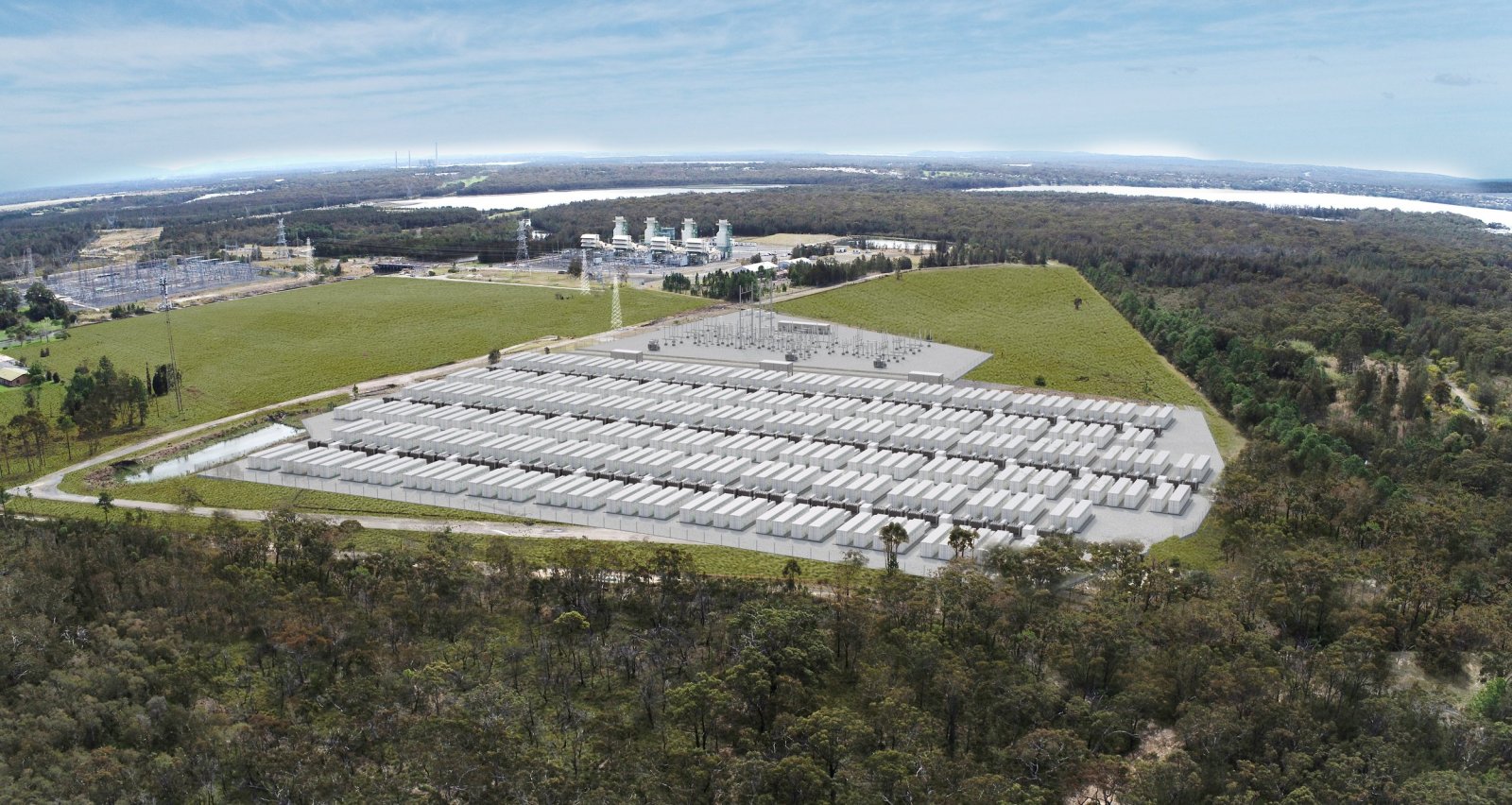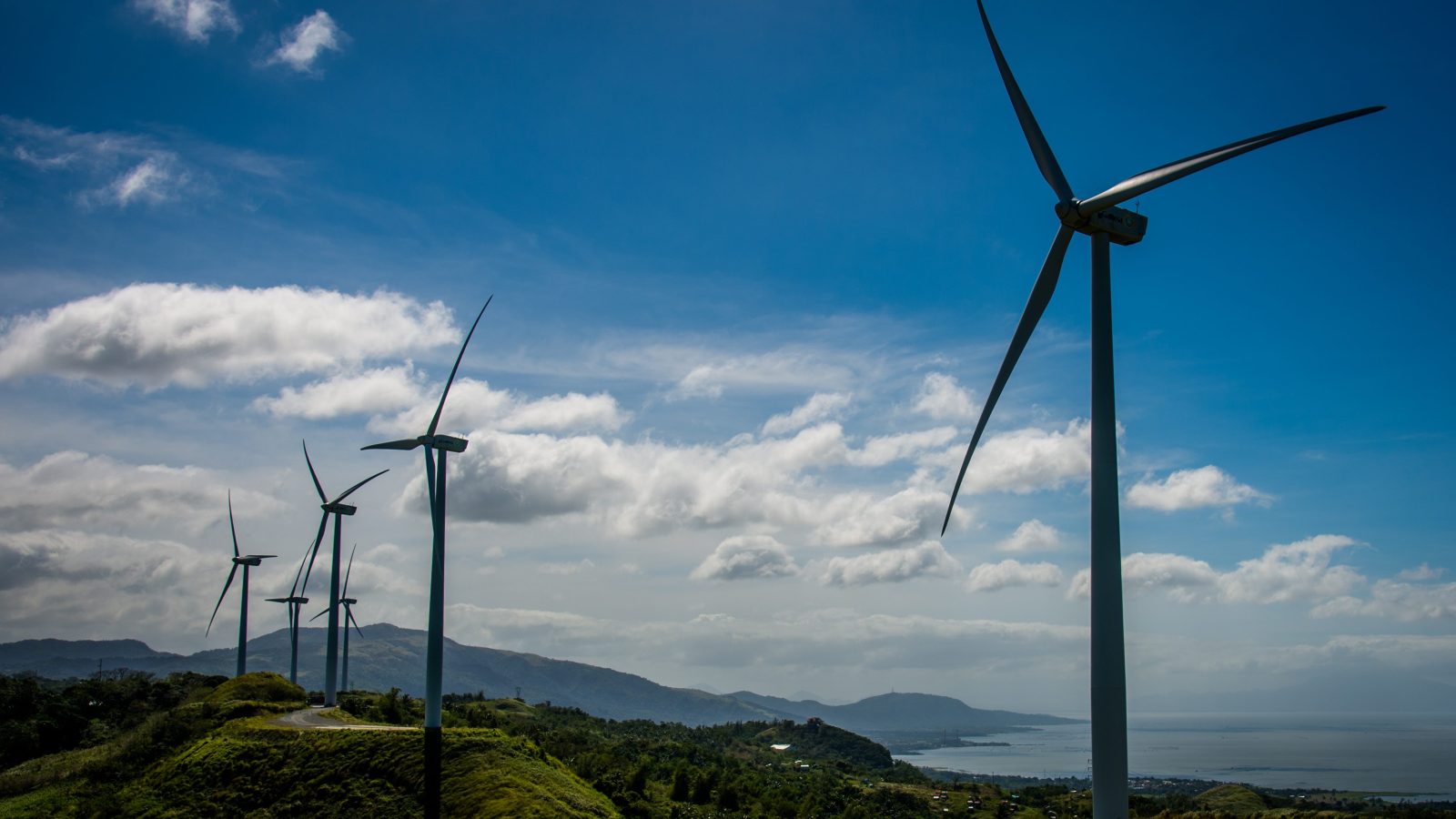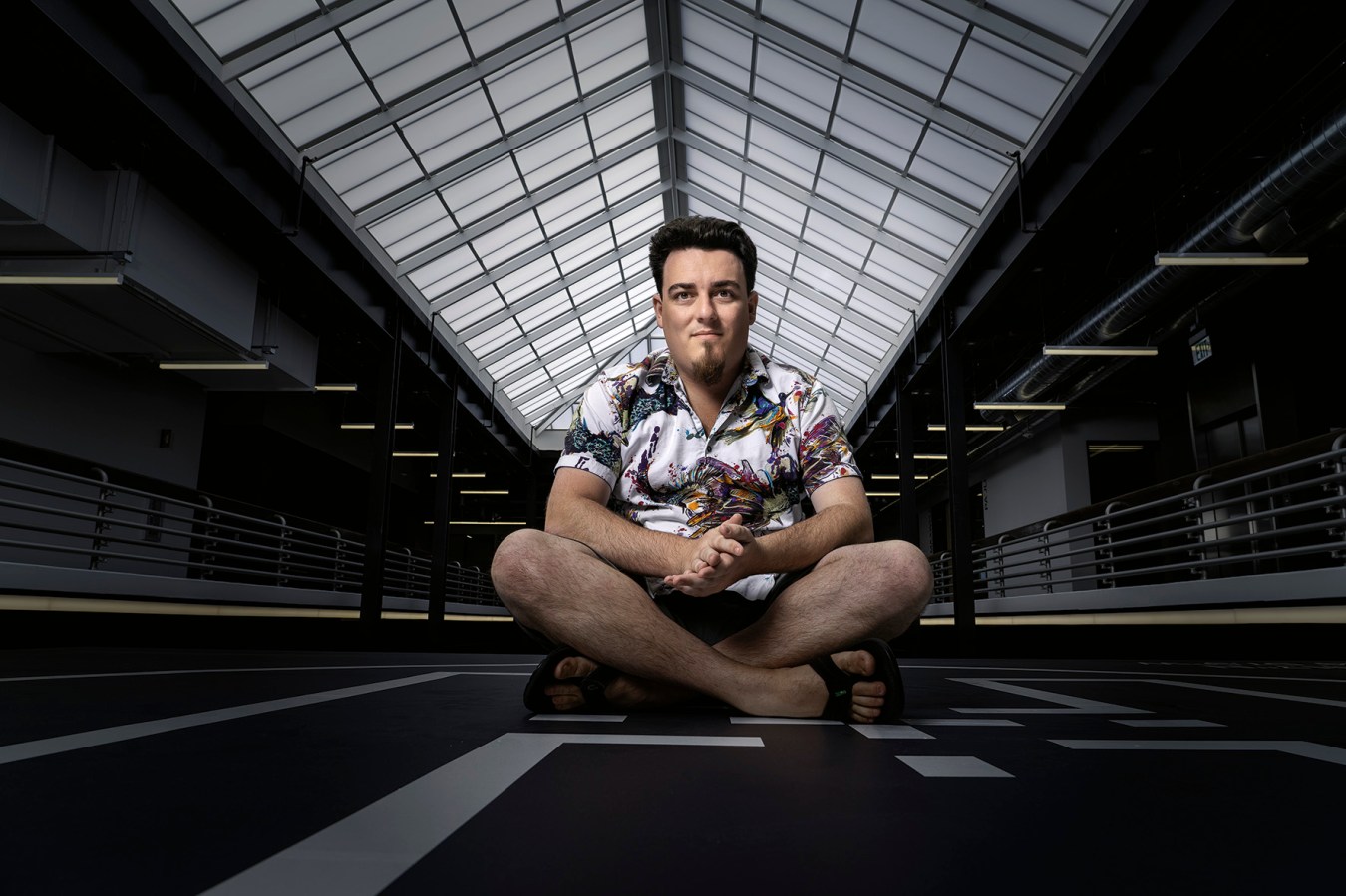By 2027, Australians may be able to take flight powered in part by sugarcane and wheat grown right here at home. We talk to Jet Zero CEO Ed Mason about sustainable aviation fuel (SAF) and what needs to be done to bring his alcohol-to-jet fuel vision to fruition.
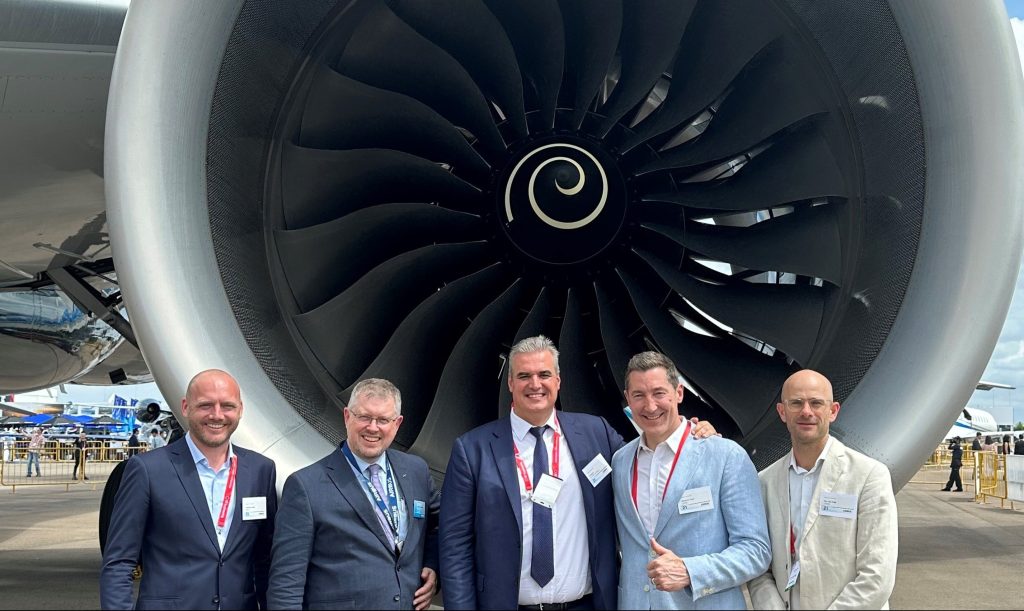
Ed Mason has jumbo-jet-sized ambitions.
“Beyond the purpose of decarbonising aviation – a big emitter of CO2 accounting for 3% of all emissions worldwide – by developing Sustainable Aviation Fuel (SAF) in Northern Australia we’re offering new skilled employment, fuel security, and renewable energy. If we don’t act, we will be importing the fuel instead in years to come from countries that are acting on the opportunity,” says Mason.
Setting up the Project Ulysses plant in Townsville that can convert ethanol derived from wheat and sugarcane to more than 100 million litres of SAF annually, is a herculean task that is close to his heart.
“I have a family home in Far North Queensland and spend a lot of time up there,” says Mason.
The genesis for the idea to create an industry from agricultural by-products began as a way to ignite innovation and economic development in FNQ.
” It was about developing a new industry in a region largely dependent on tourism, bananas and cane farming and looking for new industries to keep the rural towns open for business, that’s how this started.”
Three years after founding the company, Mason’s vision is taking flight.
“We hope to be producing SAF from our project by late 2026/2027 to help Qantas meet their commitment to be using SAF on 10% of all flights by 2030, equating to about 600 million litres per annum.”
Jet Zero CEO Ed Mason
Jet Zero announced today that engineering on Project Ulysses has started. Jet Zero has signed an agreement with LanzaJet, a U.S. company that opened a similar facility in Georgia, and has agreed to assist in developing the Jet Zero facility in Australia.
“LanzaJet is a technology licensor and our agreements to date are limited to engineering and technology licensing,” says Mason.
The agricultural products that Jet Zero is looking to, are wheat and sugarcane. While the sugarcane crop is in abundant supply, developing a facility to convert it into sustainable jet fuel is an expensive endeavour.
“The biorefinery in Queensland is still in the pre-front-end engineering design stage. We are currently estimating that the facility will cost approximately A$600m including contingencies.”
The Jet Zero CEO and multiple members of the team have spent time at the Georgia facility.
“This is an important reference project for us, at a third of the size of our project,” says Mason. “Our engineering team have been to site multiple times and will work closely with the LanzaJet team over the coming months to apply the learnings from the Freedom Pines Facility to our Project Ulysses biorefinery.”
Jet Zero says that SAF produced at the facility has the potential to reduce CO2 emissions on commercial flights by approximately 70% relative to fossil-based jet fuel.
And that goes a long way to assisting the Australian government to meet its commitments to get to reduce CO2 significantly by 2030, and get to net zero by 2050.
Airlines, the government, and SAF
The national airlines of Japan, the U.K., and now Australia are showing commitment to developing sustainable aviation fuel.
Tokyo-based All Nippon Airways, British Airways and Qantas are all a part of partnerships to commercialize an alcohol-to-jet (ATJ) sustainable aviation fuel. They are joining Jet Zero and US-based LanzaJet to see that sustainable fuels take flight.
“A year ago Qantas and Airbus made a joint investment of $2m as part of their joint US$200m fund to accelerate the establishment of a SAF industry in Australia, they are looking to increase that,” says Mason.
“The Queensland Government has also contributed $760,000 towards the feasibility study that we completed recently.”
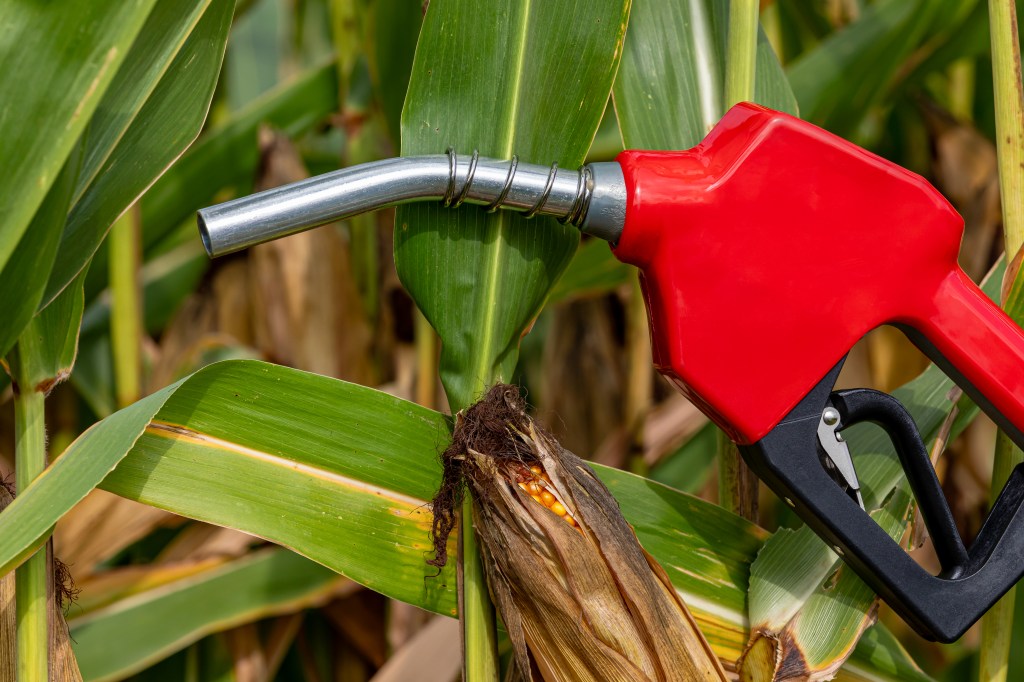
Mason says in addition to funds, policy support from the federal government would be helpful to ensure sustainable jet fuel produced in Australia takes flight.
“For the broader airline industry in Australia to lead the takeup of SAF, they will need government to take a more active role around policy and industry support, as seen in the US, Europe, Japan and more recently Singapore,” says Mason.
Mason notes that further support from the aviation industry is also needed.
“We talk to a lot of airlines although few have dedicated the type of capital Qantas and Airbus have set aside to decarbonise the aviation sector in Australia.”
The supply
“Australia already holds the most certified organic agricultural land area in the world, producing surplus volumes of sustainable ethanol from agricultural and sugarcane byproducts,” a statement from Jet Zero reads.
Department of Agriculture, Fisheries and Forestry (DAFF) statistics show we are the third largest sugarcane producer in the world. Molasses from sugarcane can be converted to ethanol. Australia is also the largest producer of wheat in the Southern Hemisphere – facilitating a strong supply of wheat starch that can be converted to ethanol.
DAFF figures state that Australia produced 180 million litres of fuel ethanol in 2021, and 18 million litres of biodiesel.Jet Zero plans to take that ethanol and make it into jet fuel.
It is an important issue to tackle, as transportation – including air travel – is expected to be the largest source of emissions in the country by 2030.
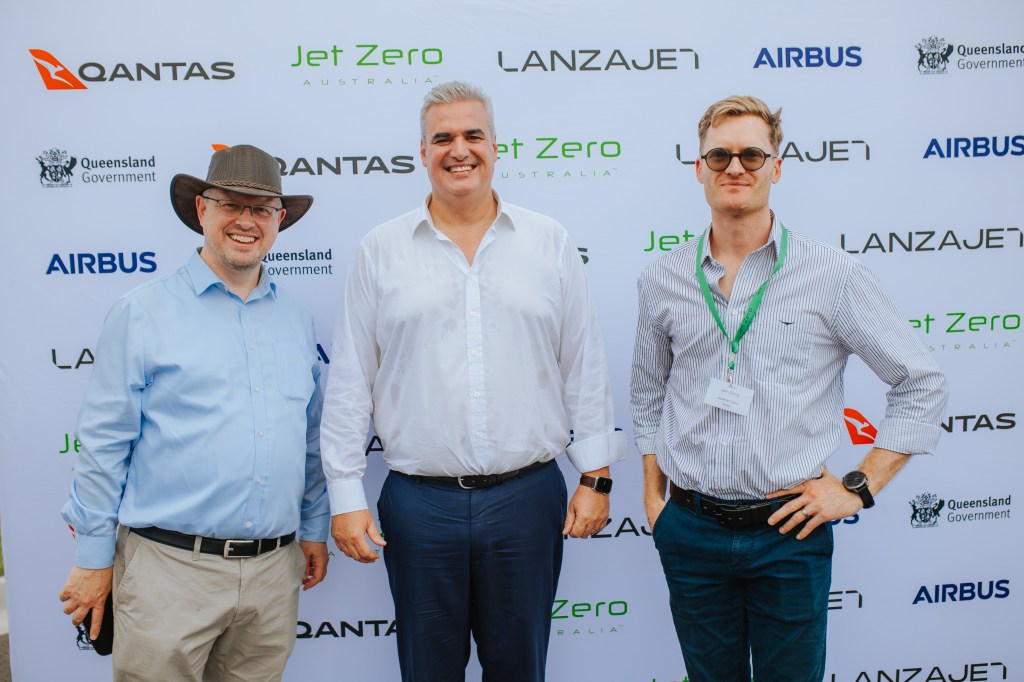
“Sustainable aviation fuel is the most significant tool airlines have to reduce their emissions but it’s only available offshore with no local supply for airlines in Australia,” says Andrew Parker, the Chief Sustainability Officer at the Qantas Group.
“Qantas is investing in technology like this Queensland biofuel refinery to help kickstart a local SAF industry so flights around Australia can be powered to produce lower emissions,” says Parker.
Another aviation industry heavyweight company is weighing in too. Stephen Forshaw, is the head of Airbus in Australia, New Zealand and the Pacific. He cautions now is the time to act and Australia needs to innovate to improve emissions from flying.
“Australia lacks production of Sustainable Aviation Fuel. The challenge to start production is urgent. If we don’t move soon, the opportunity to build a new fuels industry locally will disappear. However, we think Australia has every chance of becoming a sustainable fuels superpower, with the right support from government and industry,” says Forshaw.
Look back on the week that was with hand-picked articles from Australia and around the world. Sign up to the Forbes Australia newsletter here or become a member here.
